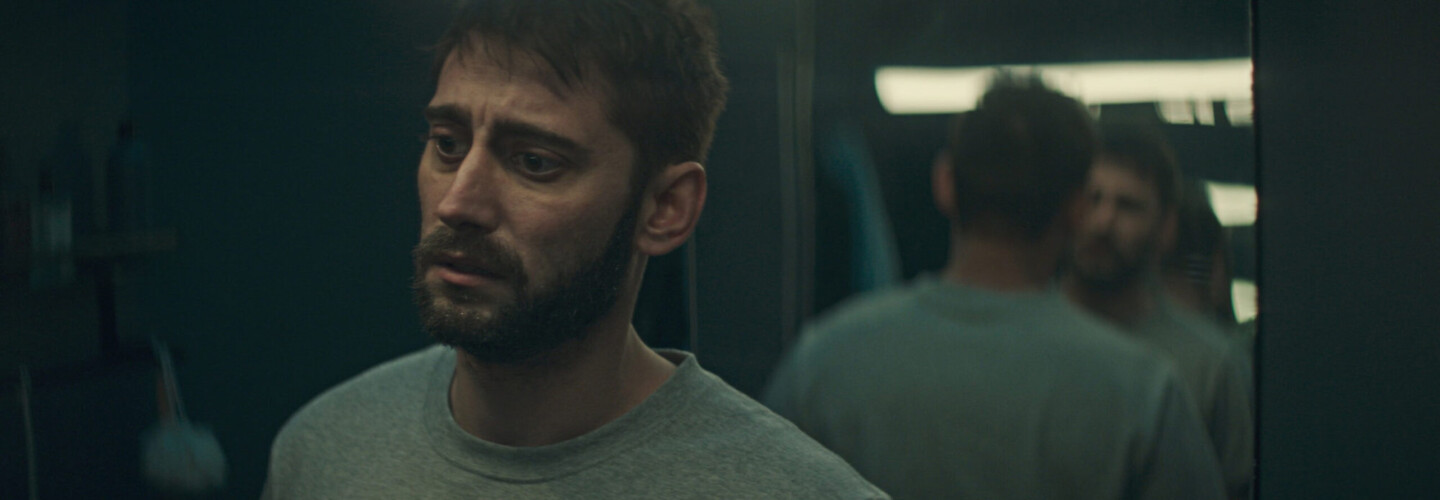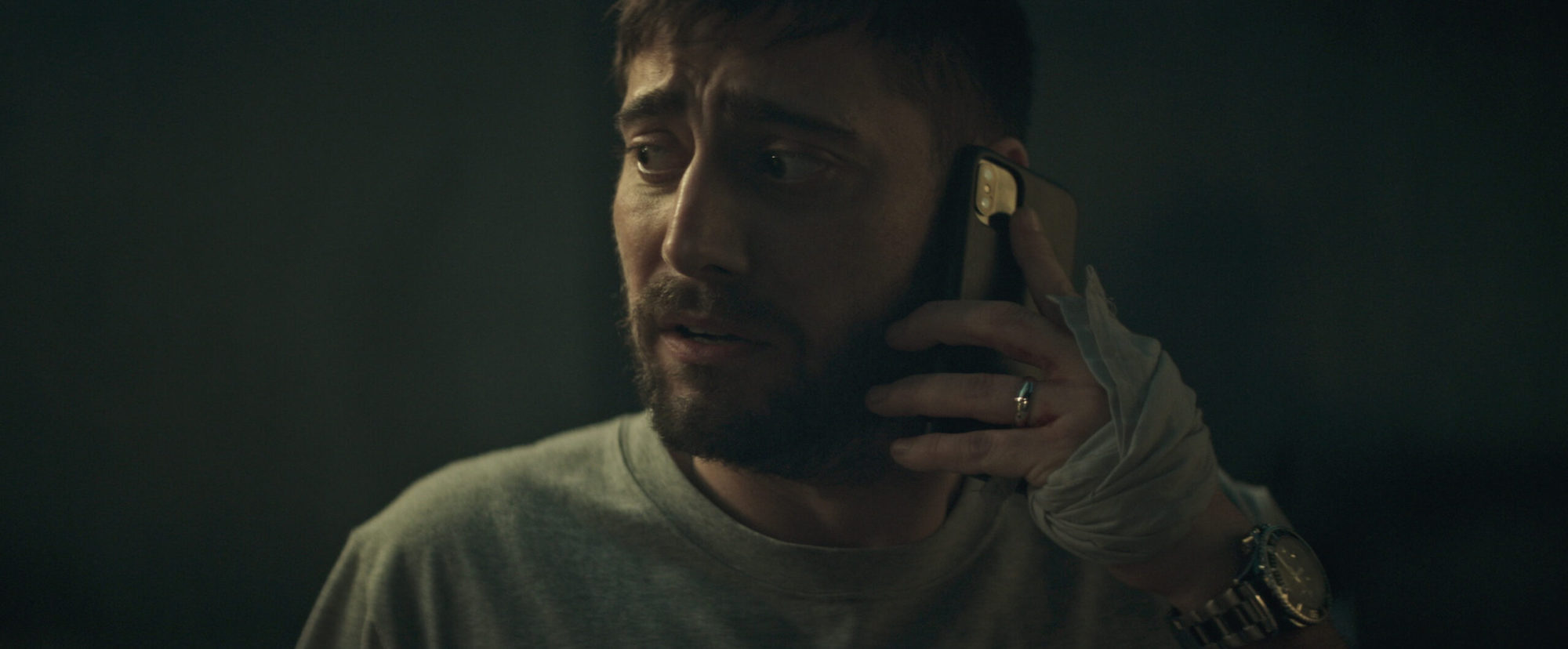
If you had the chance to talk to an earlier version of yourself, what would you say? And why would that person want to trust you? This is the exciting concept at the heart of the gripping sci-fi thriller Edicius, with Michael Socha playing the same lawyer arguing with himself before and after a mysterious event involving a shady, unknowable organisation. Is it really a different version of himself or does he have a more nefarious purpose? With shades of both 12 Monkeys and Fight Club, this intellectual thriller, executive-produced by Idris Elba and which played at the Raindance Film Festival, makes great use of the actor’s physical presence as well as boasting an array of cinematic tricks, including motion control and in-camera movements. We talked to photographer-turned-director Uzo Oleh about casting Socha in the dual lead role, mixing practical with VFX, being inspired by John Grisham-thrillers and his plans to turn Edicius into a feature film.
How did you come up with this mind-bending idea?
I’ve always been obsessed with the idea that you’re always talking to yourself. You always have this voice in your head. The question is: who is the voice in your head and why do they lie to you? Because everyone says trust your intuition, but my intuition tells me to go to sleep because I’m tired. Which makes perfect sense. But I happen to be behind the wheel of a car going 80 miles an hour on the freeway and it still sends me the same information. So I thought about what it would be like to have that conversation with that person face-to-face. That’s where the idea came from: it started small, from across the dinner table, and then it got blown out of proportion, with lots of car stunts and lots of running, like a 90s Grisham thriller.
You always have this voice in your head. The question is: who is the voice in your head and why do they lie to you?
The Firm with Tom Cruise comes to mind, with this shadowy firm where you don’t quite know what they are representing. What was it like thinking about the wider world in this film, especially as we don’t know quite what they want from Jason?
My wider concept is always around the fact that there are people so powerful, that we don’t really understand them. We like to be in armchairs talking about the government. Anthony, who is representing this organisation, is so powerful, that you interact with them thinking you know what they are about, but you have no idea what they’re about. They know everything. I wanted to have this poor desperate guy think he can support this organisation, but they can literally erase him and everything else. It doesn’t even mean anything to them. But with the short story being 20 minutes, I wasn’t able to flesh those details out so I wanted to use symbolism through the way that Anthony interacts and the fact that he’s driving a bulletproof S class. Even in his mannerisms: it’s not gangster, it’s kind of on a different level.
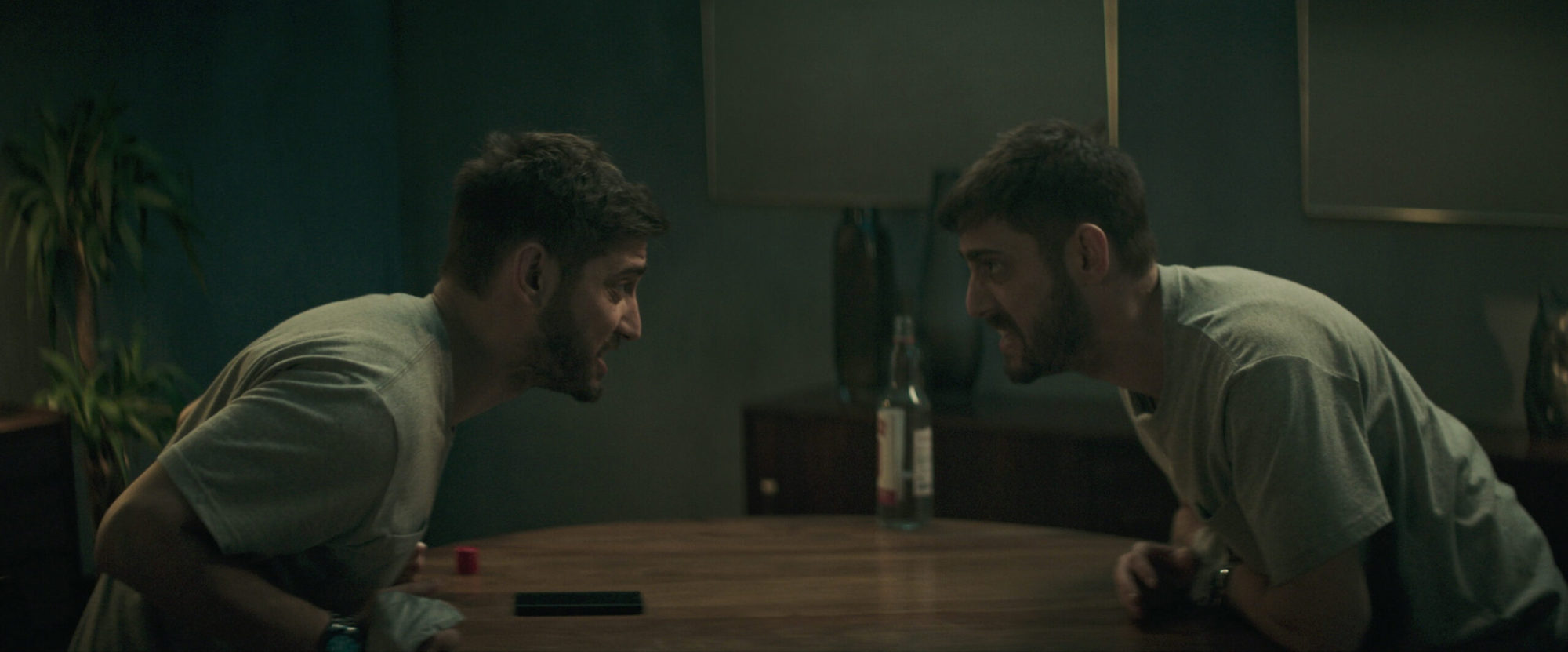
And did you always have Michael Socha in mind for this dual role?
I told our Casting Director Sophie Kingston Smith that I was looking for the British Jake Gyllenhaal. By that, I meant someone with so much character that can play a lead but has ‘character actor’ in their DNA. My friend Michaela said that was working with him and I should just meet him: he’s the guy. I met up with him and I was like: “He’s the dude.” There’s nothing hipster about him, he’s an actor’s actor. He’s like your favourite actor’s actor. He’s that guy. And he works harder than any actor I’ve ever seen.
What was it like trying to capture him in duplicate as well as making the performance work so that there are two distinct personalities there?
Michael was exceptional. I honestly wouldn’t have been able to make it without him working as hard as he did. We used motion control, so the camera can, on a robot, make exactly the same motions repeatedly. You can do it 1000 times if you were mad. So I built the equivalent size set in my photography studio in London. Michael came with Jordan Paris, who was his stand-in. They would swap roles, swap positions and map and rehearse exactly the same movements. Particularly the timing of the movements because the camera is going to be moving at the same time.
I built the equivalent size set in my photography studio in London.
So we studied all of that then we got on set and everything fell apart. The camera didn’t do what it was supposed to do. There was a slight delay every time you pressed play. It was so funny. So we had to find ways to know how to sync it and we did it on the fly. The crew was just exceptional. Everyone worked out different methods to make it possible.
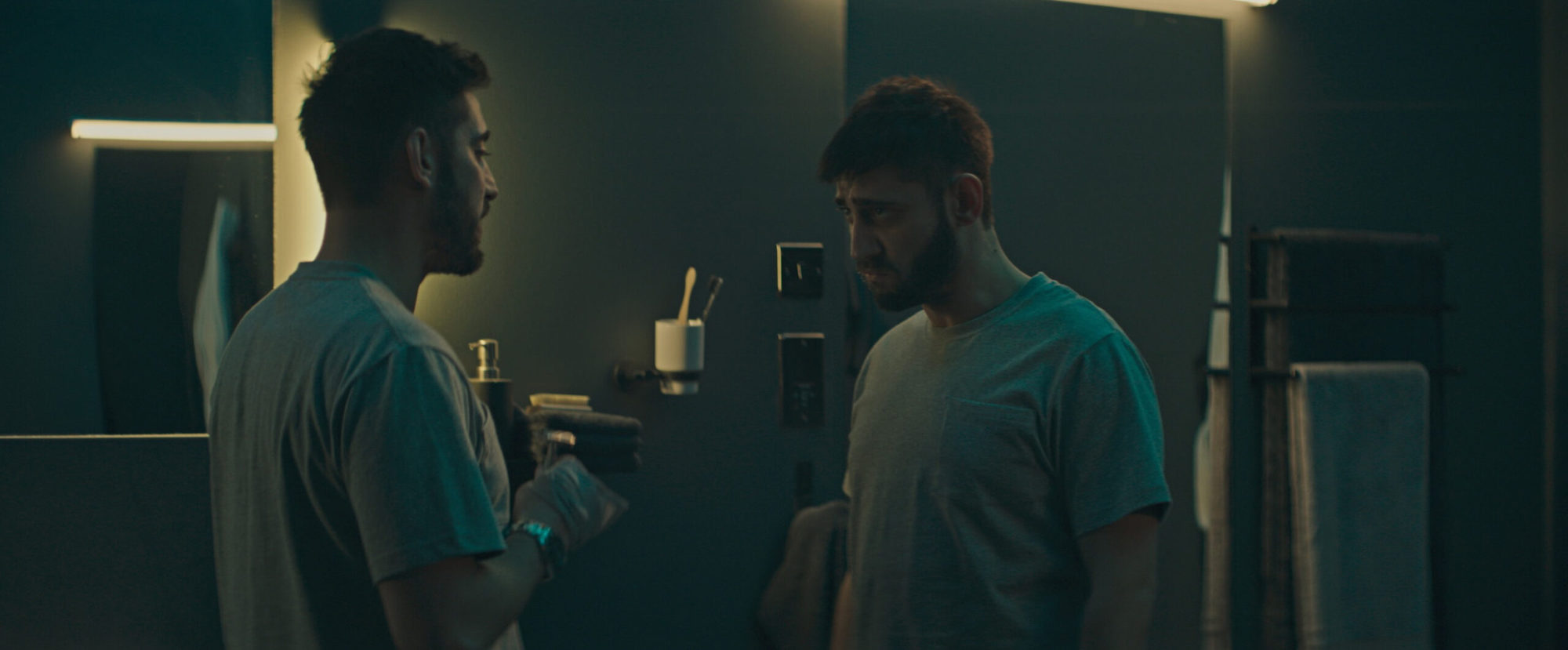
What I loved was how different his two character’s facial expressions were. For example, you can see a massive difference in the way his eyebrows move. How did you work on this with Michael?
Michael was able to understand that his intuition has had this conversation 1000 times. There’s almost a boredom to him. He already has this energy where he’s bored of having to tell Jason this. But poor Jason is in a scenario where this is the first time he’s heard of it. And when you talk to Michael about this, he’s able to instantly tap into the different energy of the characters. Like the thing about the eyebrows: you would never say eyebrows, but it’s all there in the eyebrows! You talk about the spirit and the boredom and the frustration that has to be tempered and Michael is able to translate that into these minuscule facial tics. It just blows my mind.
The crew was just exceptional. Everyone worked out different methods to make it possible.
And you create this Inception-like space with all these mirrors and the hallway that goes on forever? I’d love to know how you created this space and how much was digital vs practical effects?
90 per cent of what you see is in-camera, which I’m really excited about. We built the hallway, all the way from when you see him walk into the hallway until he gets in the bathroom. In the distance, we had a green little square, which was the size of the mirror on the other side. The guys at ninteentwenty VFX painted a continuation of infinity. And they were able to take the information from our 60s and 70s Kowa lenses from Japan on a large Alexa format and work out: if the camera moves this way, what would the render of the continuing hallway look like? How would that move? And they got it spot on which is so weird to me. But they knew exactly the sort of warp that they would need to do to make it look realistic.
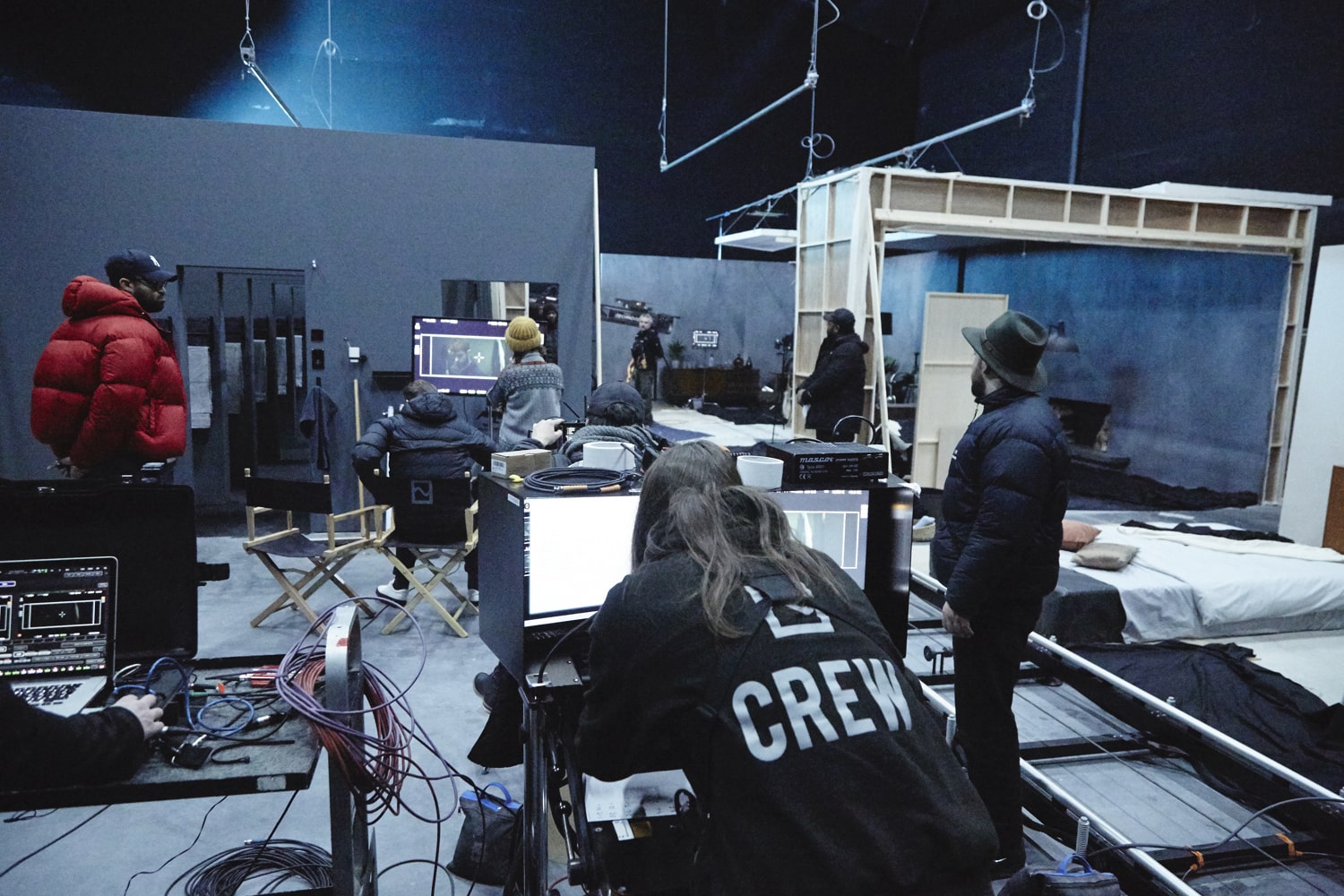
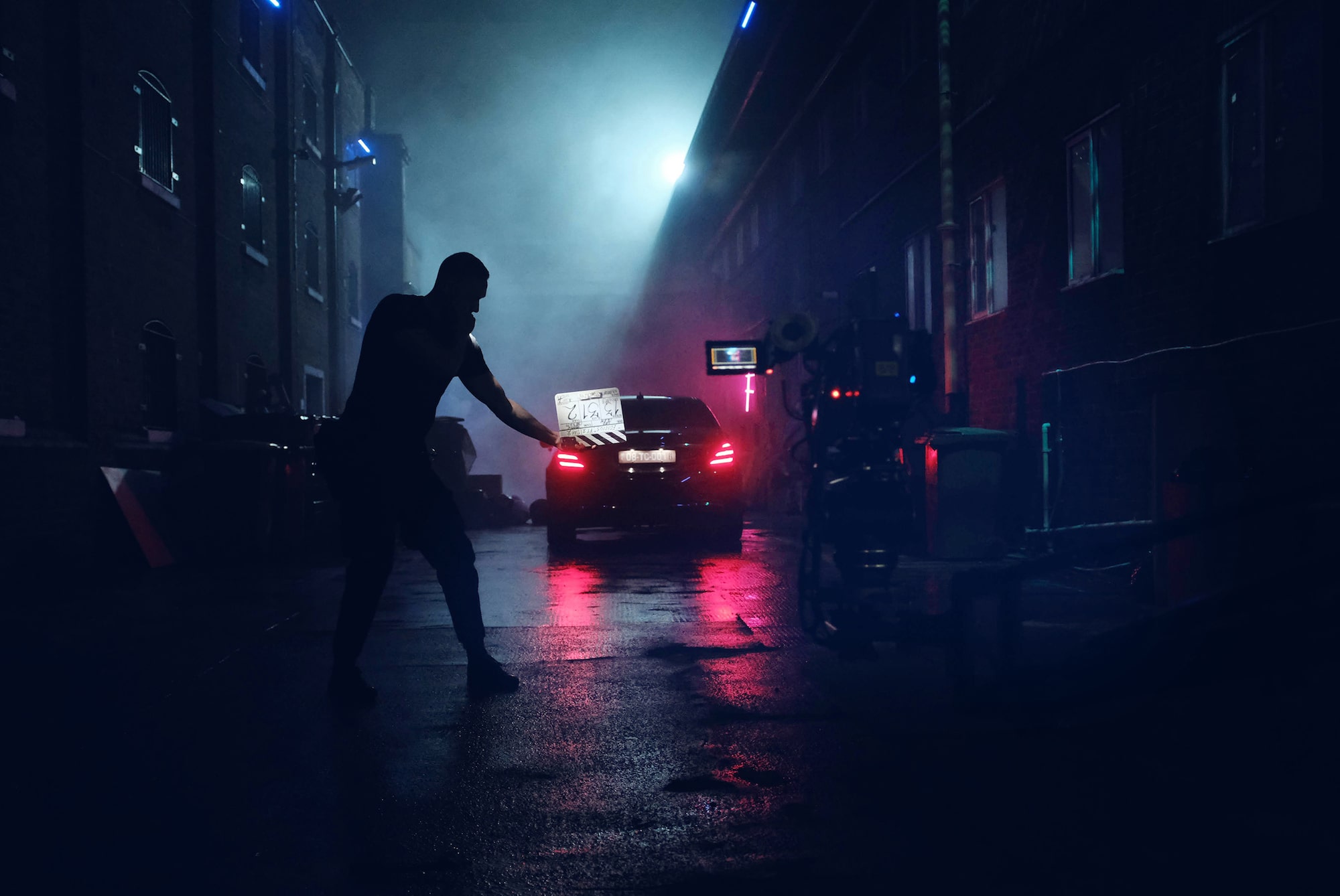
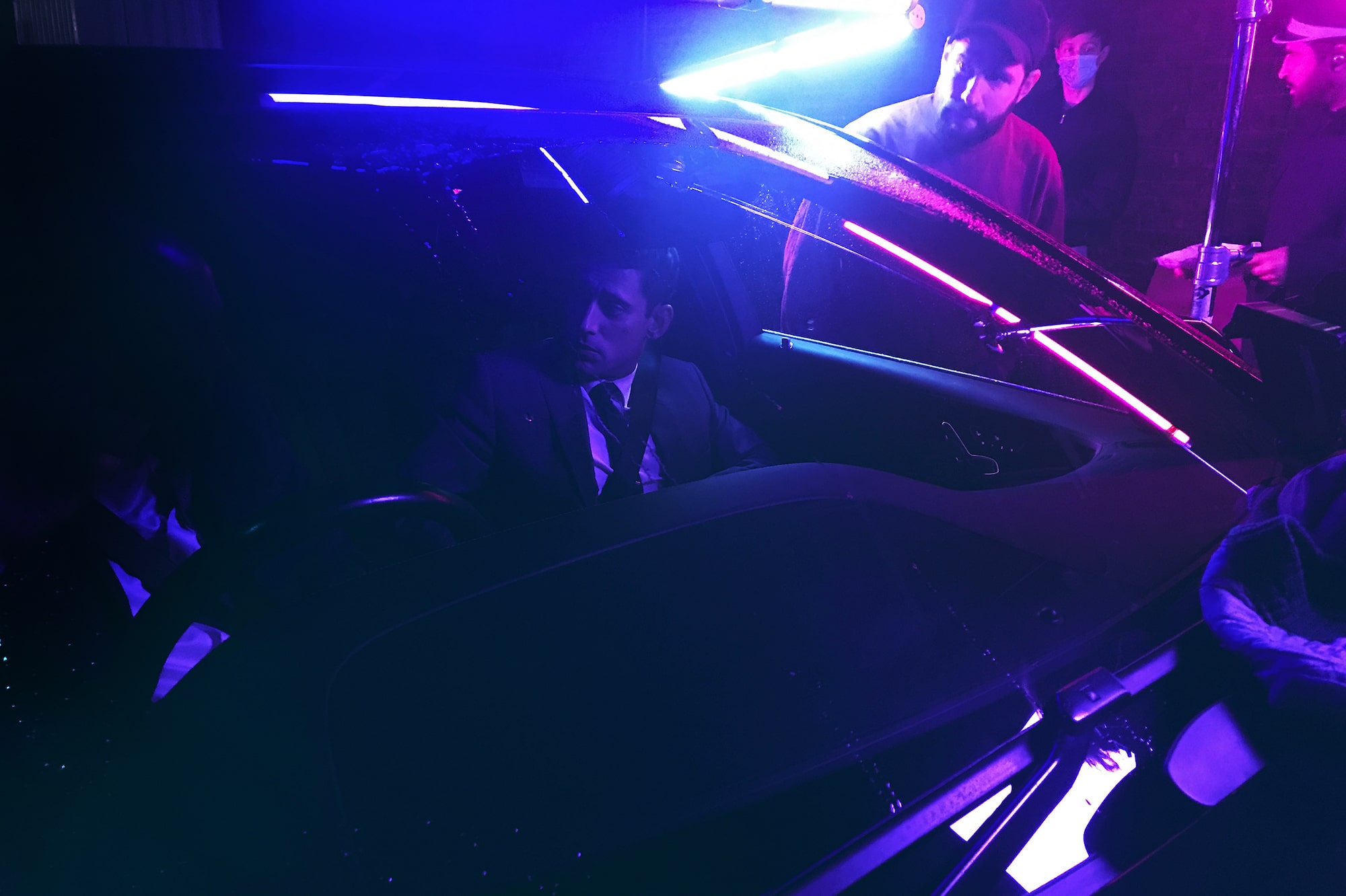

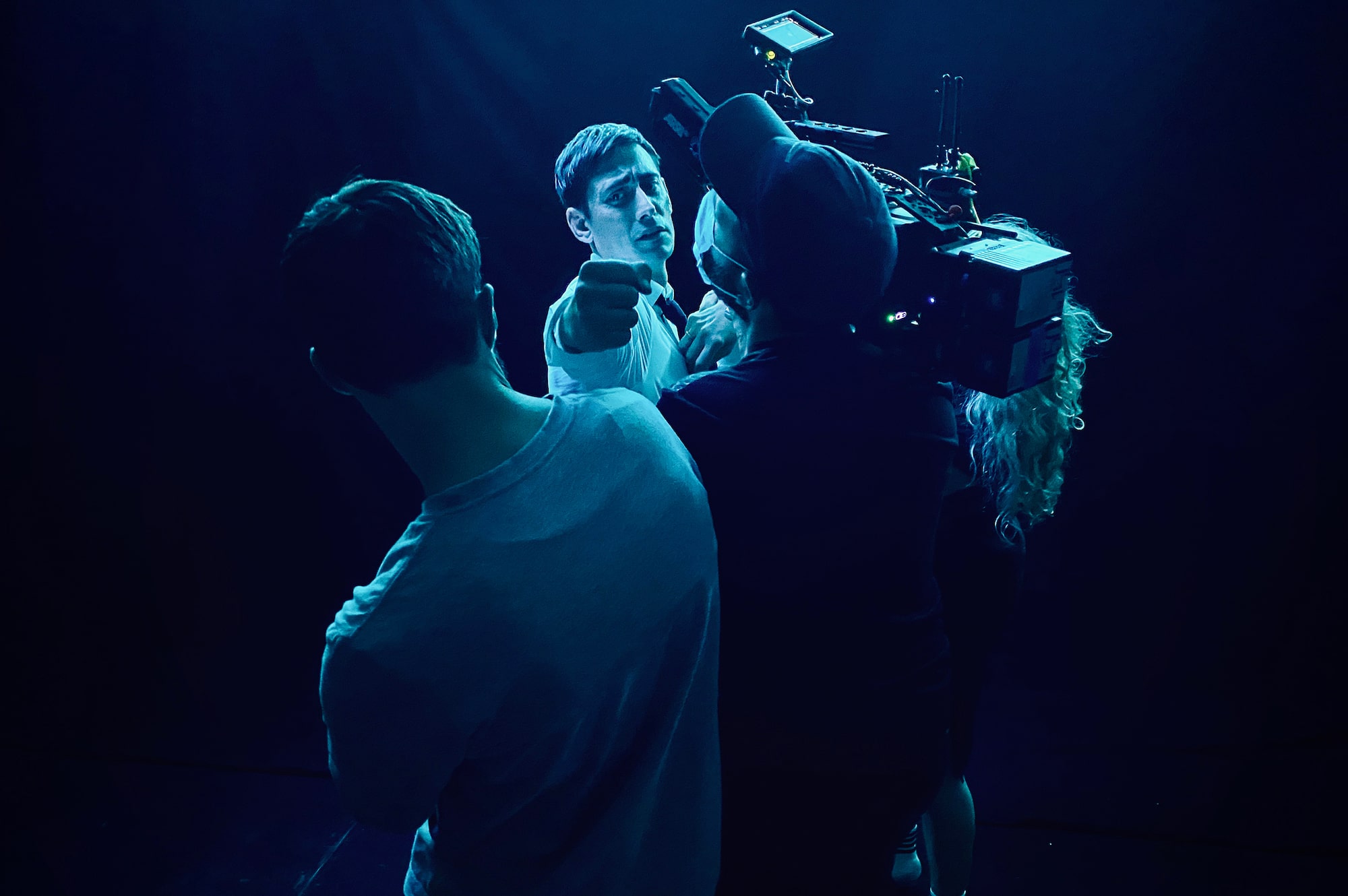
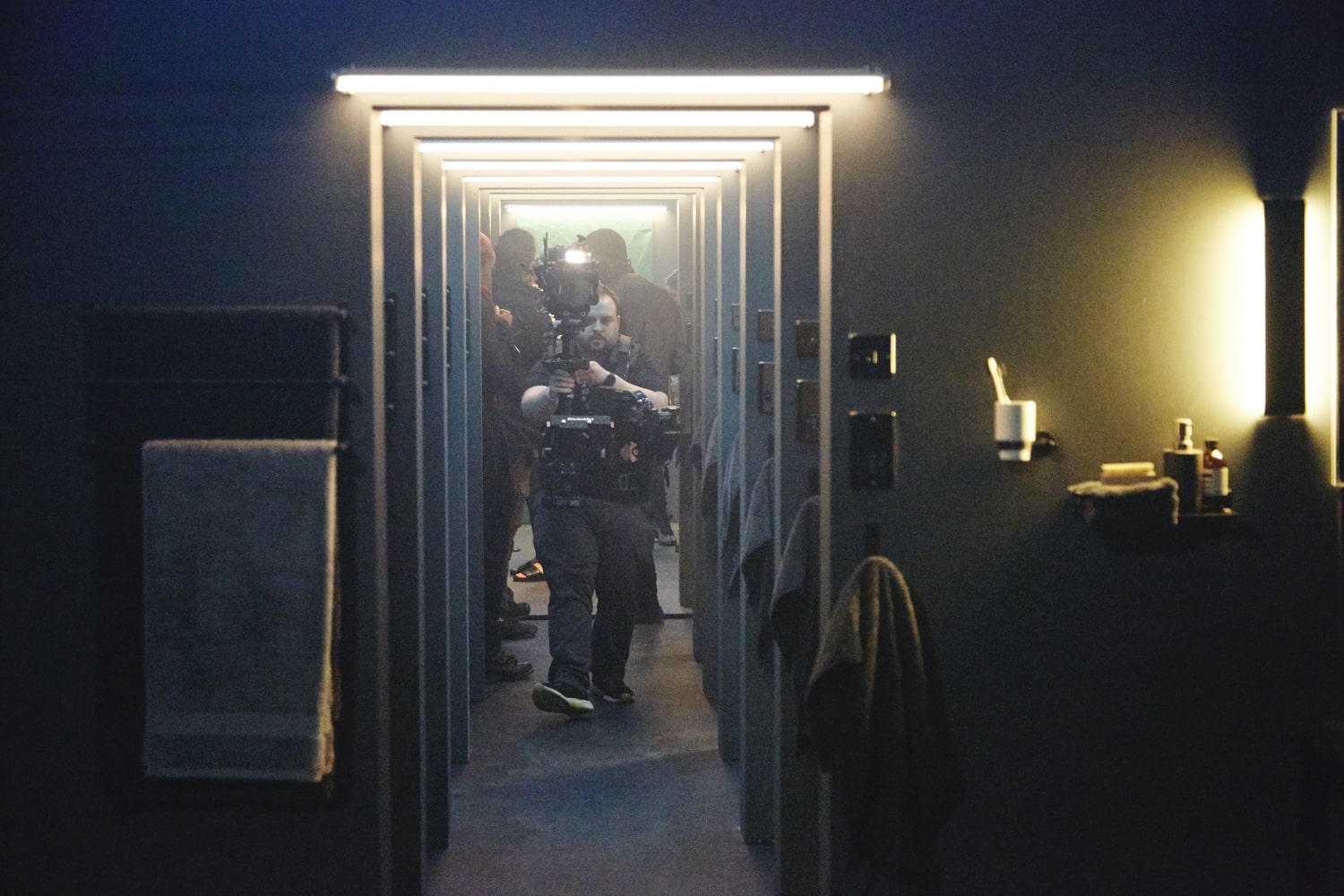
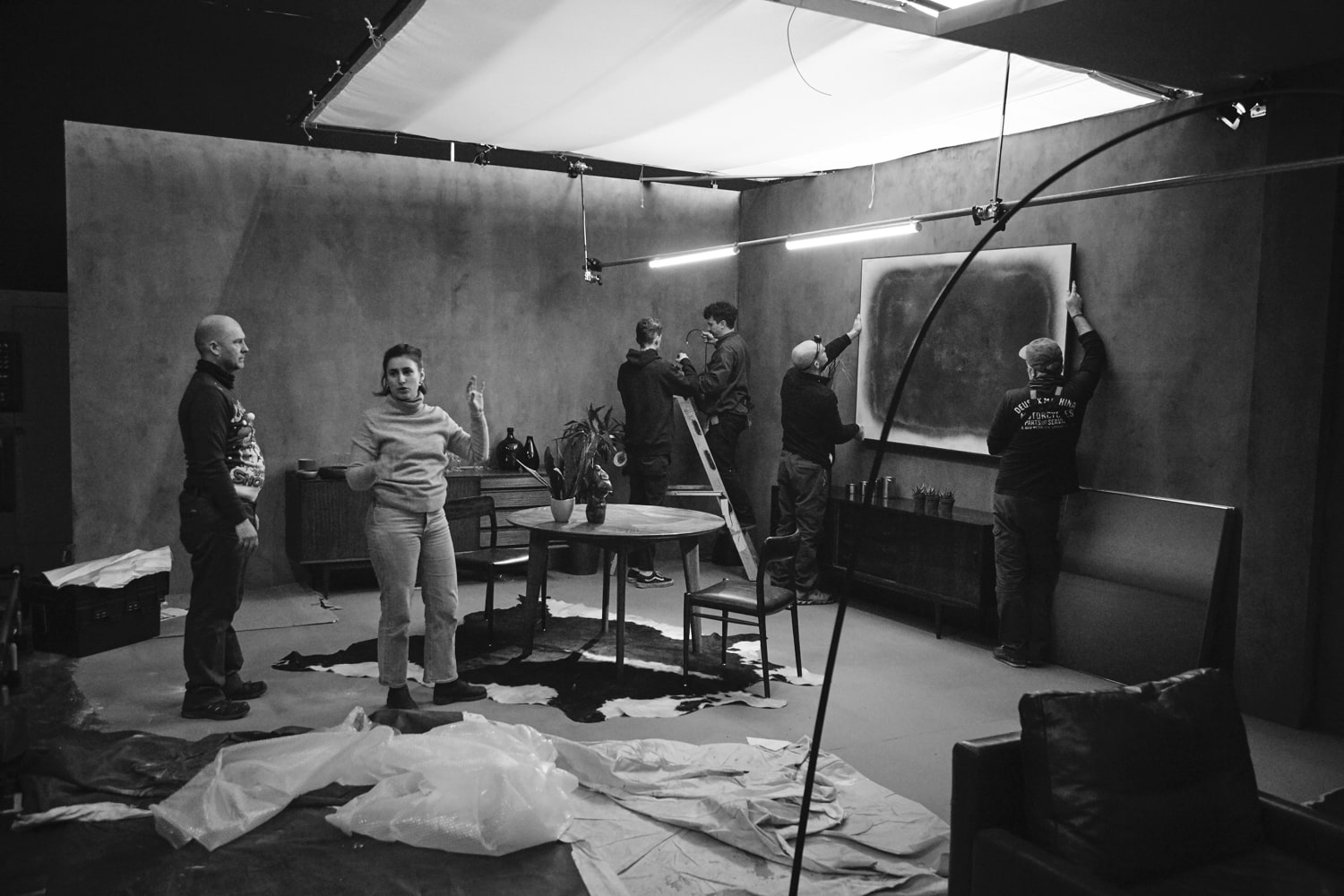
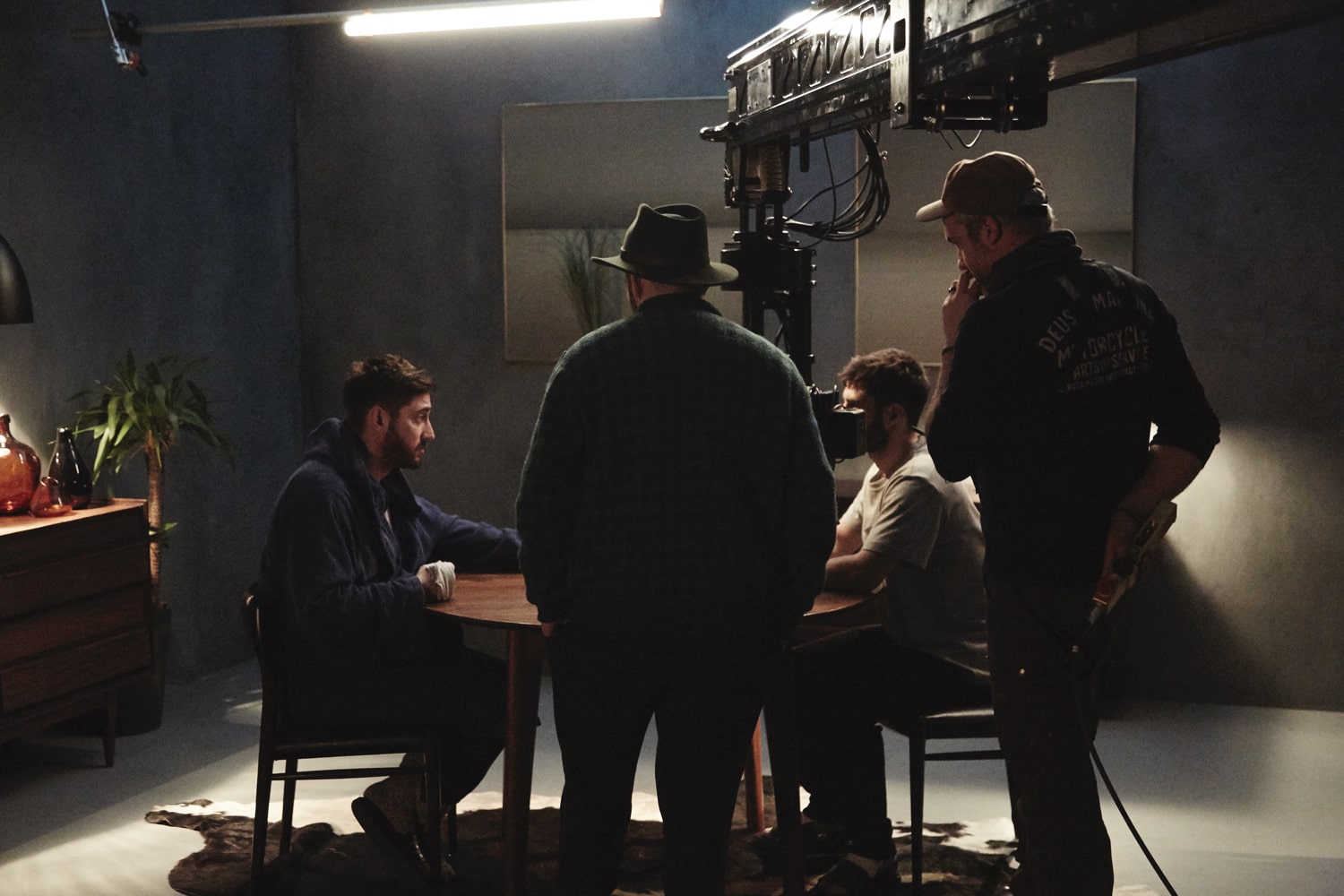
What are you working on next?
I’m working on a feature at the moment. Literally just attached to something which is super interested. Then I’m writing a TV show that I think will have an Edicius-esque element to it. I’m also writing the feature length version of Edicius which will expand the world and go deeper into the love story between him and his intuition.

